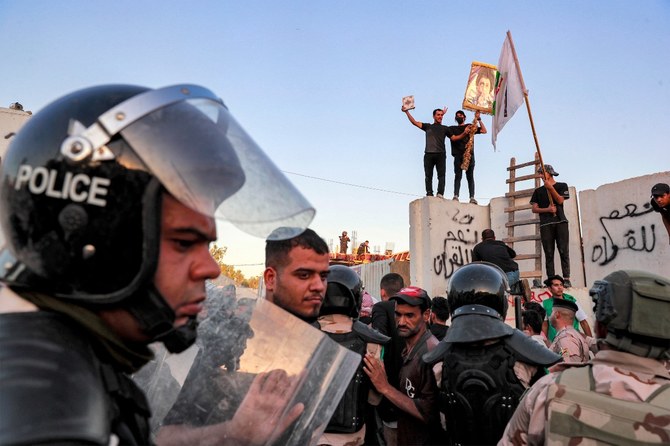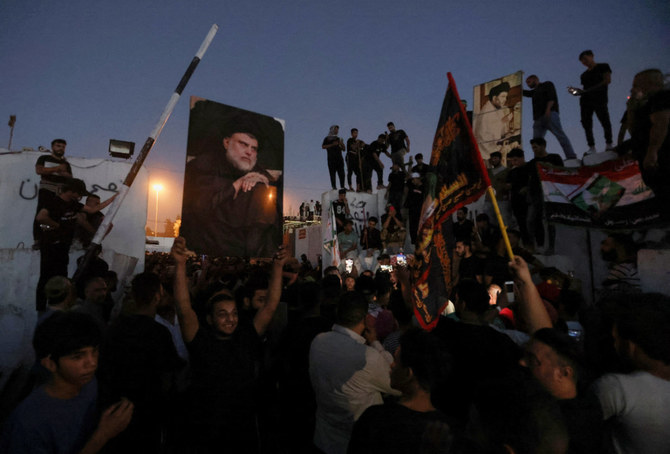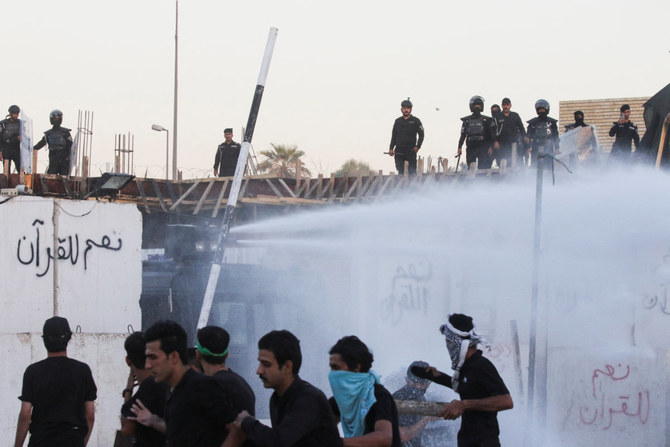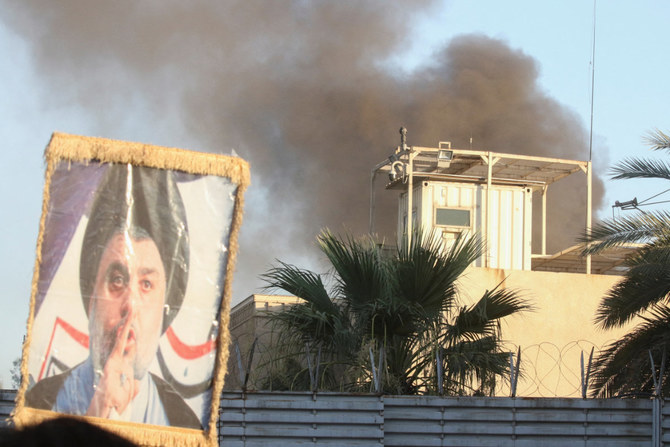JEDDAH: Iraq expelled the Swedish ambassador and protesters torched the Swedish embassy in Baghdad on Thursday after authorities again gave permission for the Qur’an to be burned in the Swedish capital.
The Iraqi government also recalled its charge d’affaires in Sweden, and banned the Swedish telecoms giantEricsson from operating in Iraqi.
Protesters including Salwan Momika, the Iraqi immigrant to Sweden who burned the Koran outside a Stockholm mosque in June, had received permission from Swedish police to burn the Qur’an outside the Iraqi embassy on Thursday.
In fact, the protesters kicked and partially destroyed a book they said was the Qur’an but left the area after an hour without setting it alight.
Earlier in Baghdad, the Swedish embassy was stormed by hundreds of supporters of the powerful Shi'ite cleric Muqtada Al-Sadr. Video footage showed smoke rising from a building in the embassy complex and protesters standing on its roof.
By dawn on Thursday, security forces had deployed inside the embassy and firefighters extinguished what was left of the fire.
The Iraqi government strongly condemned the storming of the embassy. It said the attack was a security breach and vowed to protect diplomatic missions. However, Baghdad also “informed the Swedish government ... that any recurrence of the incident involving the burning of the Holy Qur’an on Swedish soil would necessitate severing diplomatic relations.”
The Iraqi decision to recall the charge d’affaires to Sweden came after the protest in Stockholm had started but before the protesters had left without burning the Qur’an.
Swedish Foreign Minister Tobias Billstrom said the attack was completely unacceptable. “The government is in contact with high-level Iraqi representatives to express our dismay,” he said.
The US State Department strongly condemned the attack on the embassy and criticized Iraq’s security forces for failing to prevent it. The EU said it looked forward to “swift adoption of the necessary security measures” by Iraq to avoid further incidents.
However, a defiant Al-Sadr said the US had “no right to condemn the burning of the Swedish embassy but should have condemned the burning of the Qur’an.”
Turkiye strongly condemned the “despicable attack,” and called on Sweden to take “decisive measures to prevent this hate crime” against Islam, the foreign ministry said.
“We strongly condemn the despicable attack targeting our sacred book, the Qur’an in front of Iraq’s Stockholm Embassy,” a statement from the foreign ministry said.
Iran’s foreign ministry summoned Sweden’s ambassador in Tehran to “strongly protest against the desecration of the holy Qur'an,” state media reported
As in the previous case, Swedish police authorized Thursday’s proposed Qur’an burning under the country’s wide-ranging freedom of speech laws, which are protected by the constitution. Prime Minister Ulf Kristersson described the incident in June as “legal, but inappropriate.” The government is considering legal changes that would allow police to stop public burnings if they endangered Sweden’s security.
(With Agencies)





















